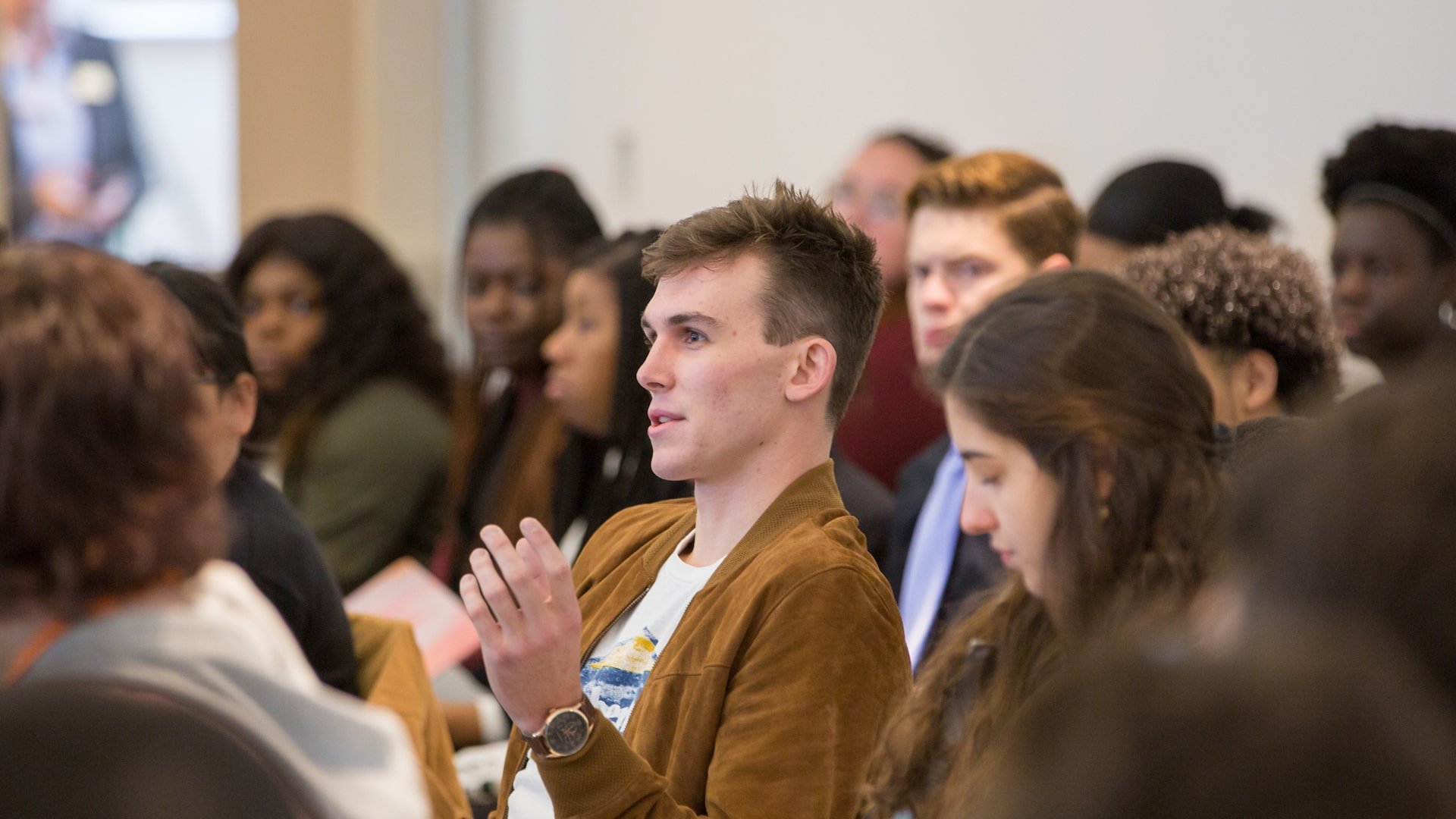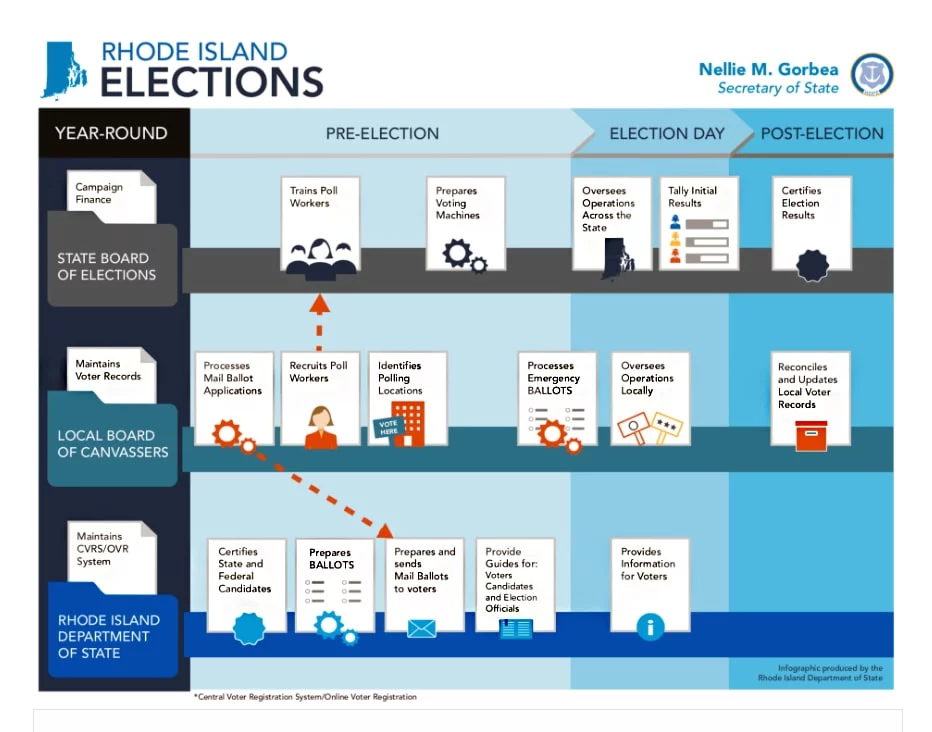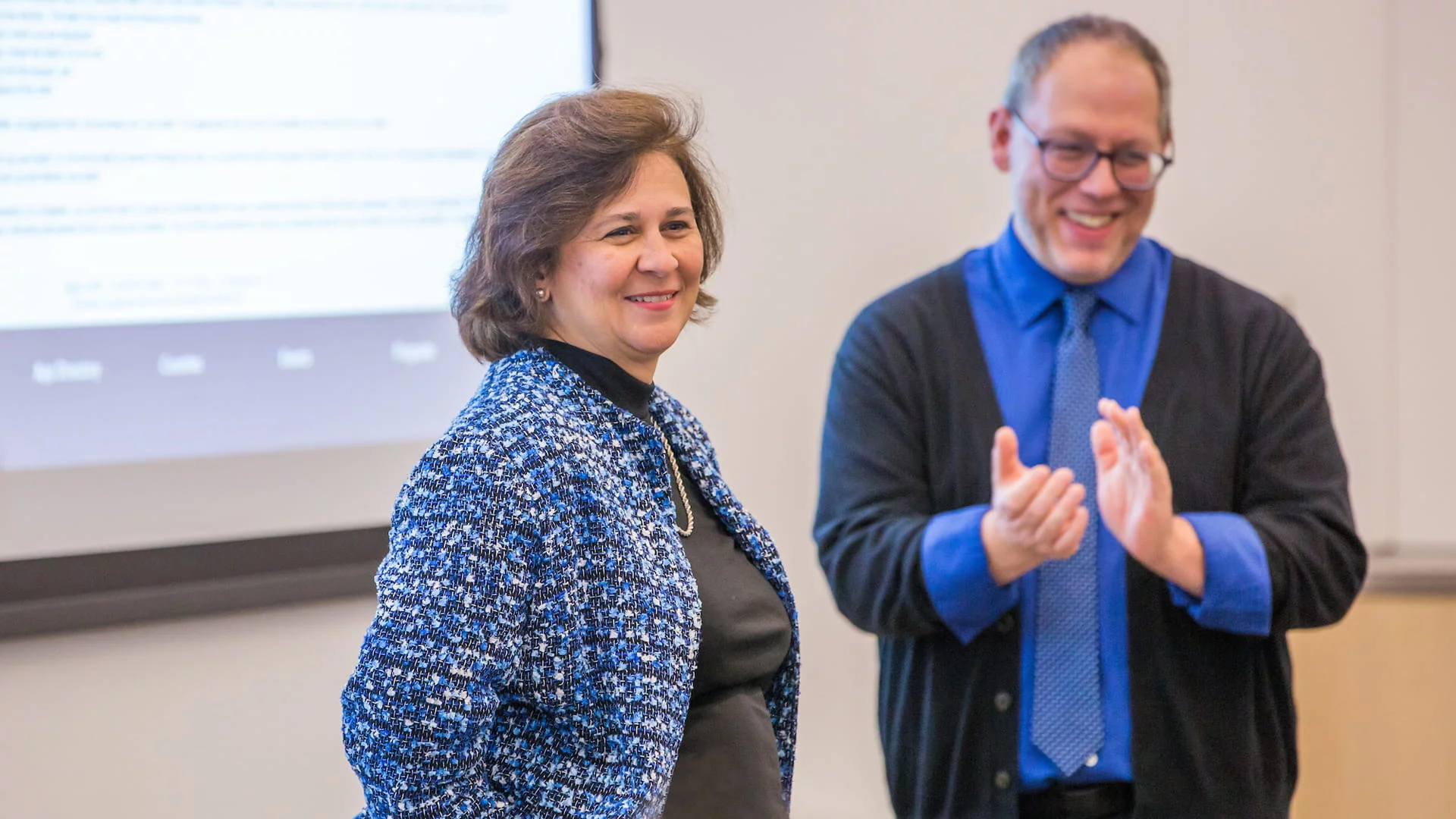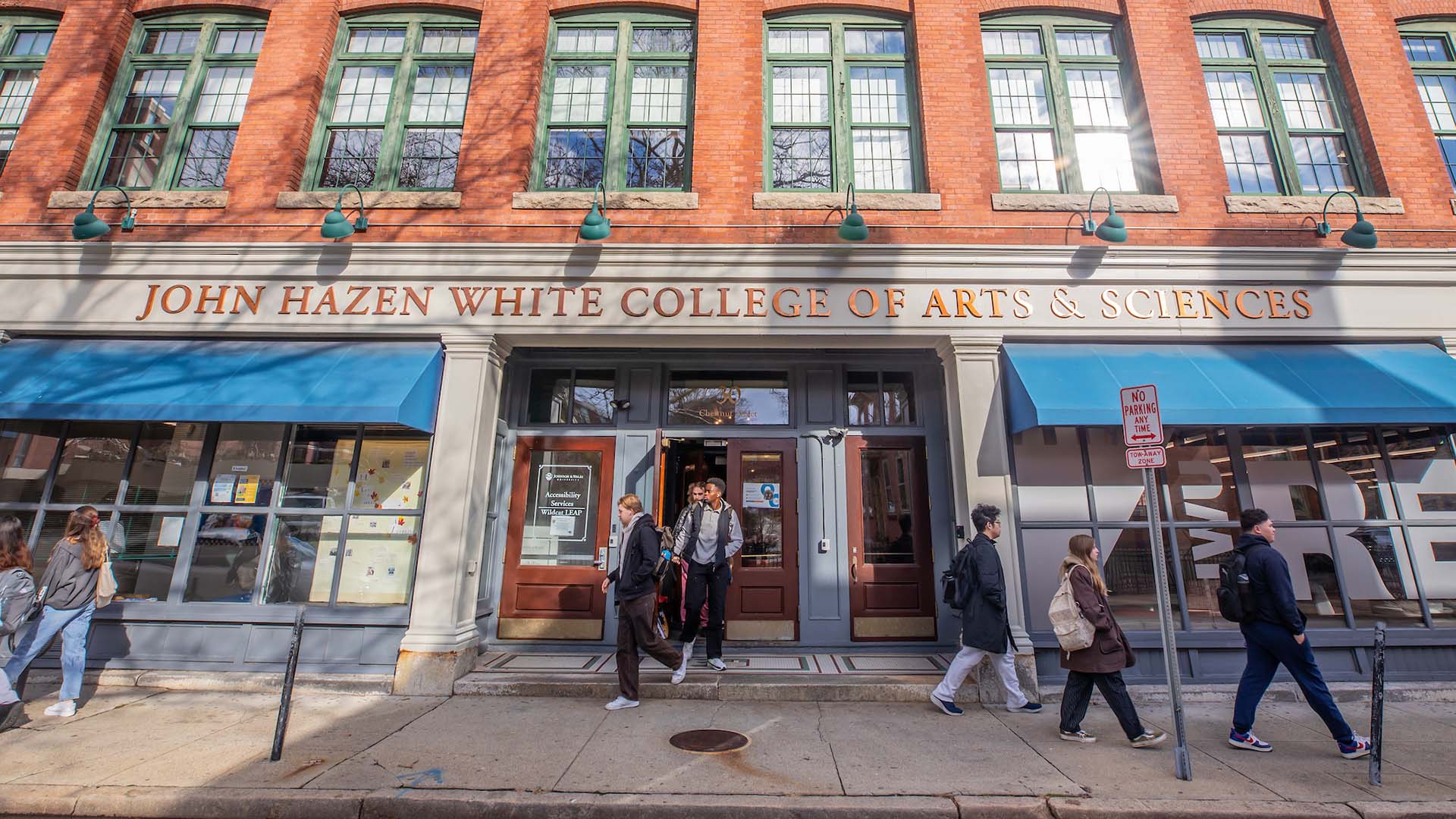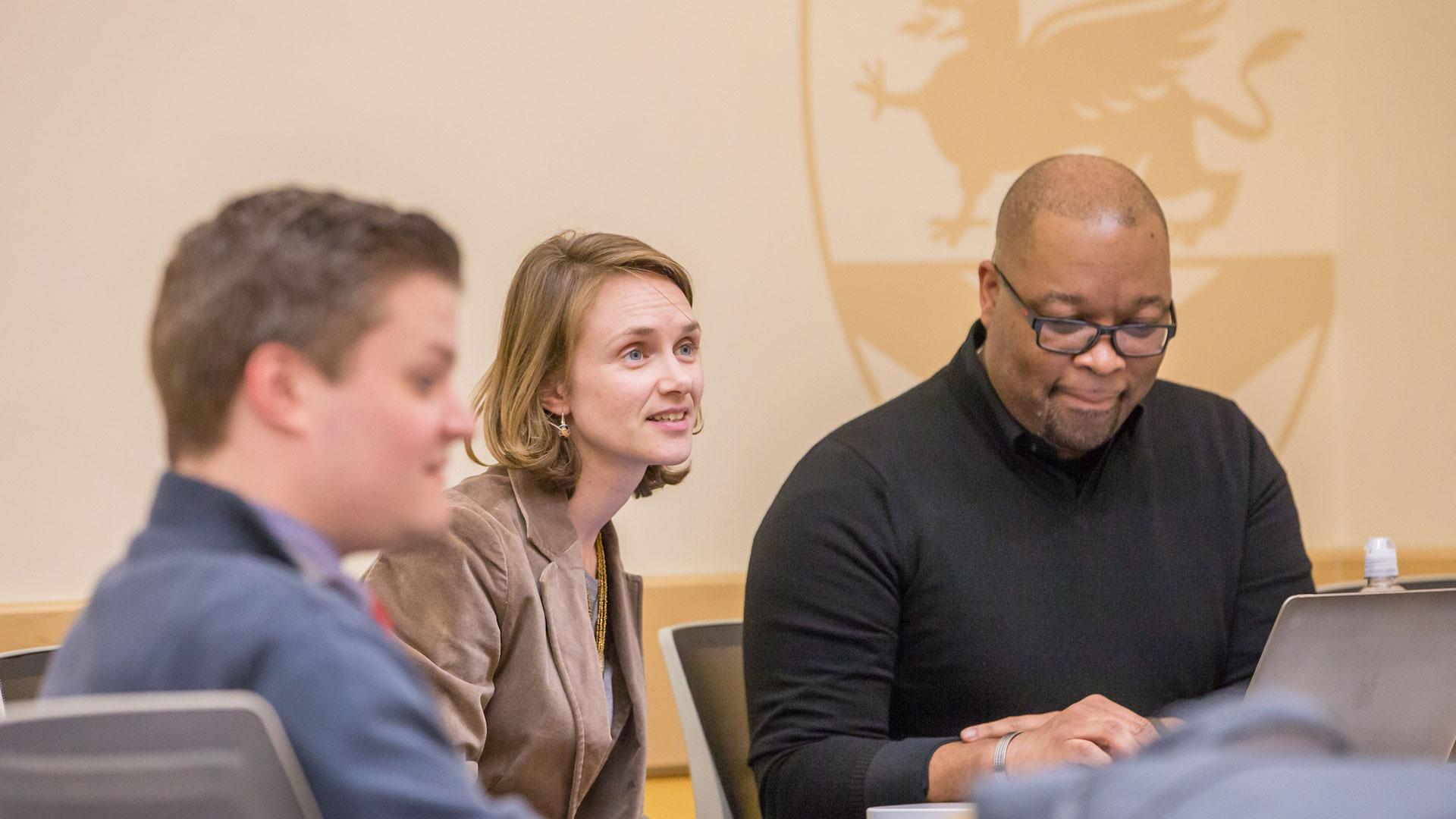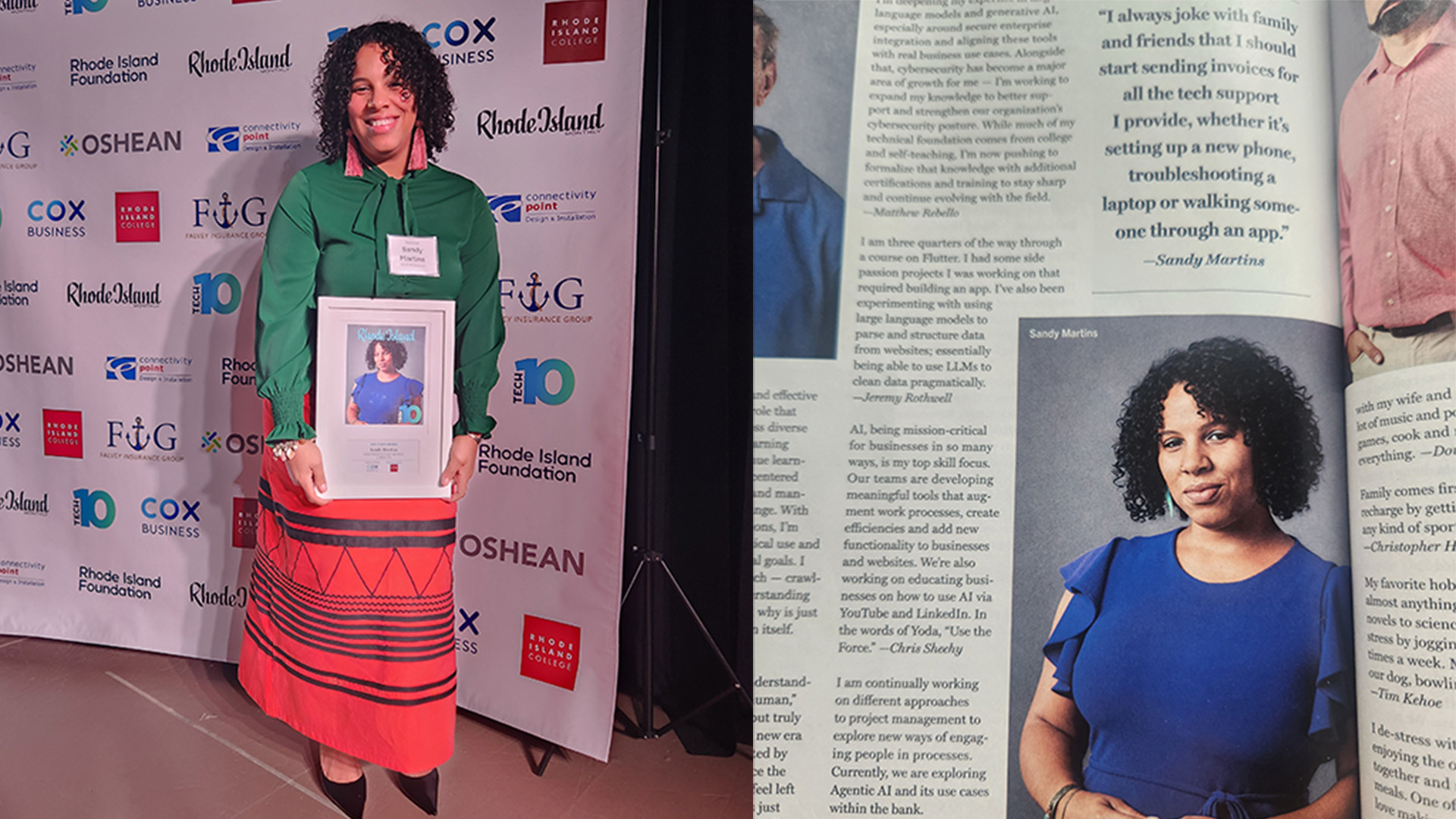Making Votes Count: Secretary of State Gorbea Talks Election Security
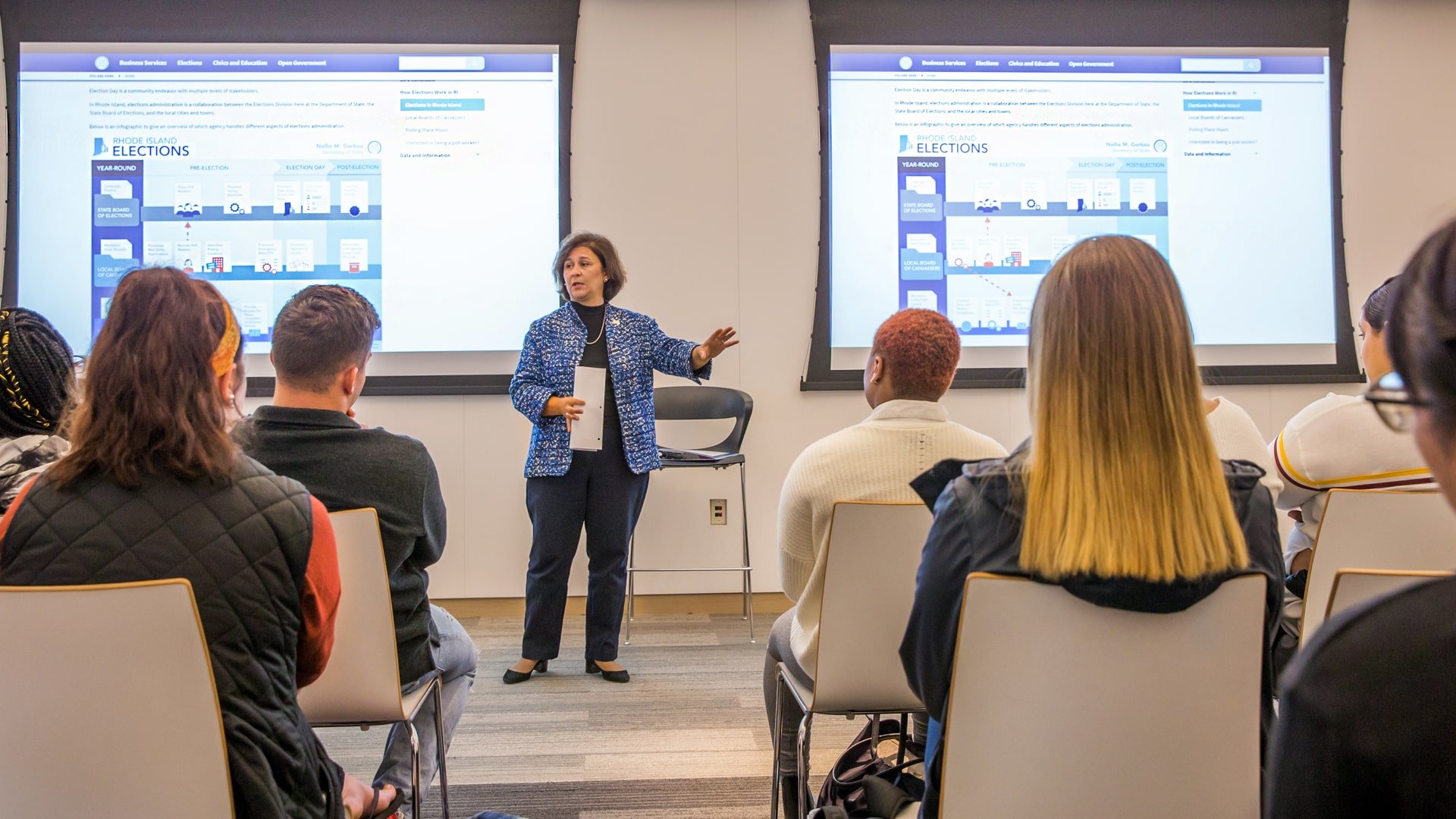
Election security is a complex issue — and as the 2020 election cycle revs up, a crucial one to understand from multiple angles. To help his students grasp the big picture, Assistant Professor Kevin DeJesus invited Rhode Island Secretary of State Nellie Gorbea to speak to Political Science and Criminal Justice students about statewide efforts to ensure safe, confidential voting — particularly in the face of emerging cybersecurity threats.
"I want my vote protected — and I want it to count."
Prior to Secretary Gorbea’s arrival, the students debated the issue at length, touching on data security, hacking, privacy vs. accessibility, and voters’ rights. “I want my vote protected — who I voted for and what I voted for — and I want it to count,” noted Political Science student Shaya Smith.
Once the Secretary of State arrived, students were eager to engage her on her greatest ongoing challenges around election security.
“The change is technology,” noted Gorbea. In the pre-internet era, elections were relatively the same from one cycle to the next. The invention of the World Wide Web and the iPhone marked the first major paradigm shift, forcing Board of Elections officials nationwide to become cybersavvy very quickly. The 2016 election marked a second shift; suddenly, the need to stay ahead of technological progress — and potential hackers — became a matter of national security.
That meant that Gorbea’s team — and state Board of Election teams from all over the US — found themselves in the position of collaborating with Homeland Security to combat cyberhacking threats to our Central Voter Registration System (CVRS). Since 2015, Gorbea’s office has worked to modernize, centralize and secure RI’s voting process. As system improvements are made, she explained, “the big balancing act is to improve access to the ballot while maintaining the integrity of the vote.”
Thanks to her team’s work, Rhode Island was among 11 states that received the highest grade for elections security in a 2018 report published by the Center for American Progress. But Gorbea isn’t resting on her laurels: “The minute you reach a goal, you’re going to have to reach for the next one,” she noted. “I always ask if we have the checks and balances in place to mitigate the risk. And there’s a paper backup for every vote in case hand-counting is needed.”
"I always ask if we have the checks and balances in place to mitigate the risk."
Presenting information in a way that’s easy to understand is also an important part of Gorbea’s day-to-day job: “It’s what I call ‘civics by design’ — it helps people learn in a way that’s attractive and accessible. Because it’s YOUR government.”
To that end, she emphasized the importance of getting involved at the local level. “Don’t just go for the big elections,” she told students. “Your local elections matter much more to your daily life. The more involved you are, the better your local government can represent your interests. Your legislators need to hear from you!”
One student asked if she had any myths to debunk about elections. “I would not trust social media!” she answered. “If you’re looking for information about an upcoming election or ballot question, always go to your official state source. You can find your polling place. You can preview the ballot.”
Students will work for the rest of the term to develop solutions and/or sample legislation to address the ongoing challenges that threaten election security; they will present their work to Secretary Gorbea and her team at the State House on November 14. Notes DeJesus, “Partnering with the Office of the Secretary of State for our Election Security RI project enables our introductory-level students to simulate the doing of government in real time. It’s what we do best at JWU!”
Want to learn more the voting process, find your polling place and more? Visit Vote.SOS.RI.gov.
BELOW: STUDENTS CAME ARMED WITH GREAT QUESTIONS FOR THE SECRETARY OF STATE. THE VOTE.SOS.RI.GOV WEBSITE IS A ONE-STOP SHOP FOR ELECTION INFO.
